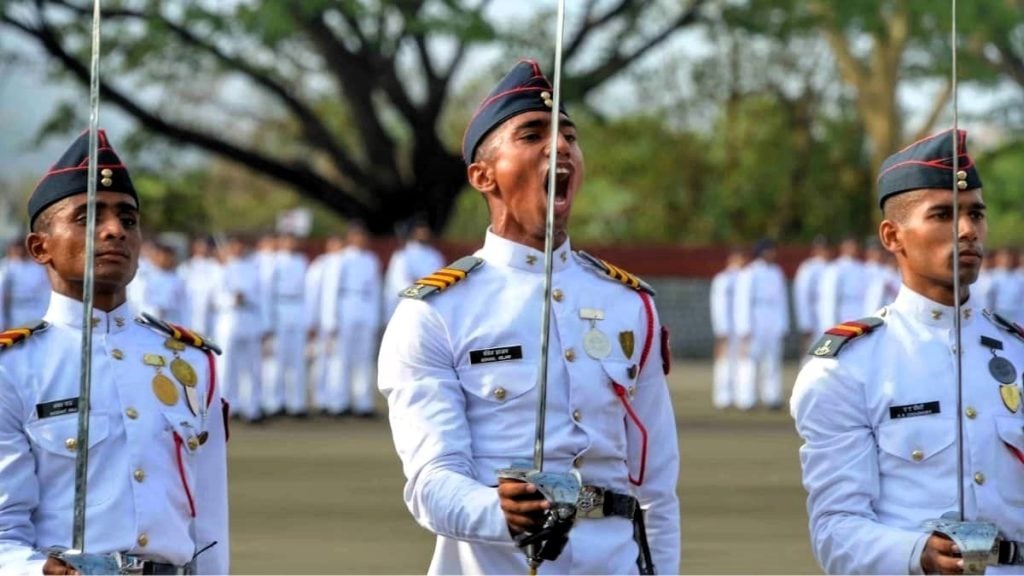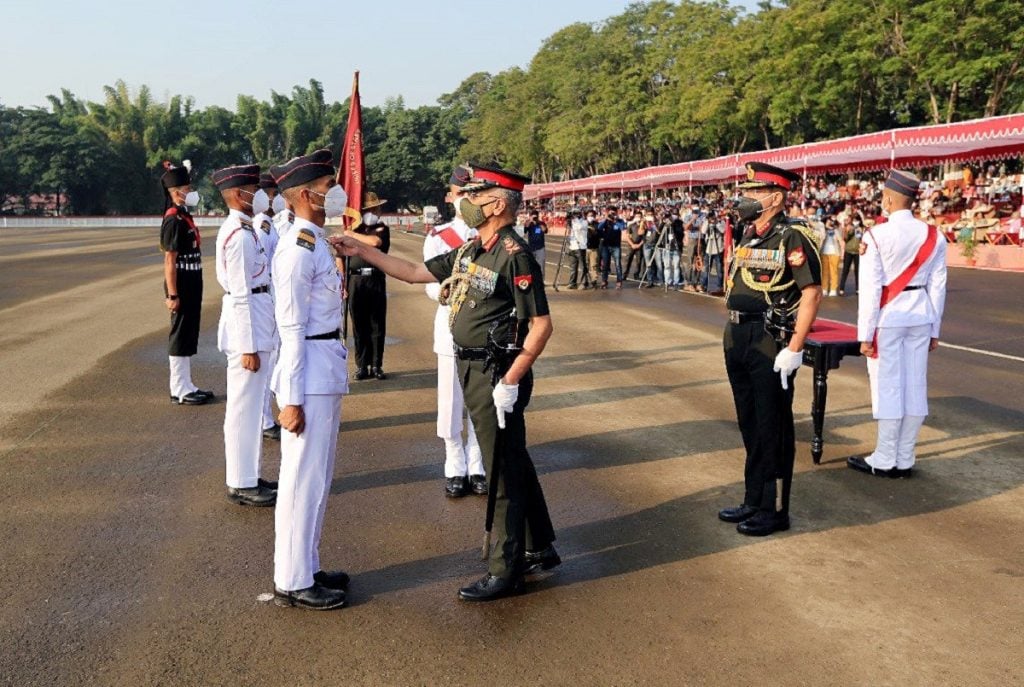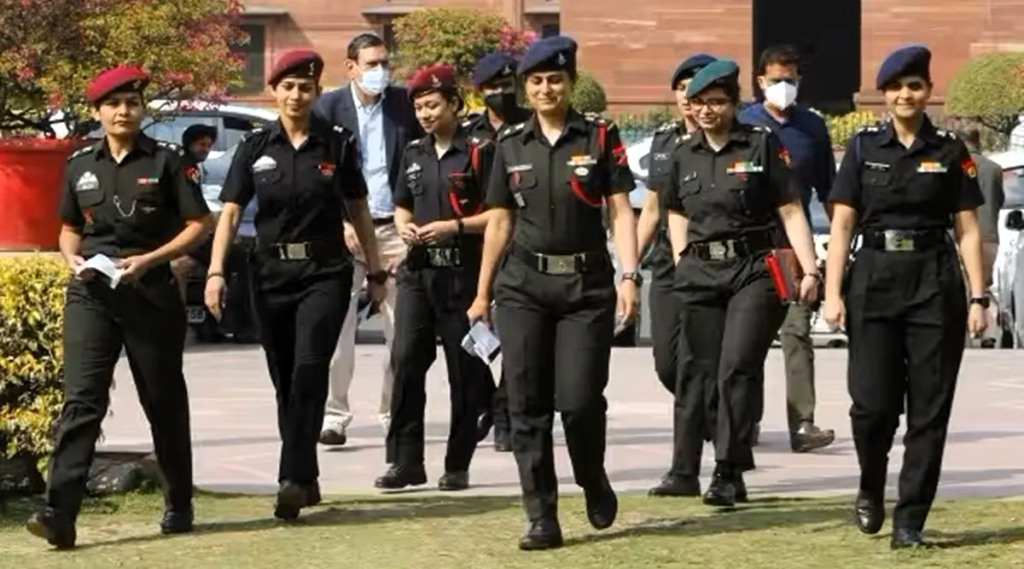Transitioning from a regular individual to an officer-like leader is a transformative journey that requires a comprehensive shift in mindset and approach. The Indian Armed Forces, through their rigorous Selection System Boards (SSB) interviews, seek individuals who not only possess exceptional academic credentials but also embody a distinct set of Officer-Like Qualities (OLQs).
These OLQs go beyond mere textbook knowledge and delve into the realm of personal growth, mental fortitude, and the ability to lead effectively in challenging situations. This article delves into the 7 Steps To Develop An Officer-Like Mindset.
1. Cultivate Unshakable Self-Confidence
The Indian Army seeks candidates who exude a palpable sense of self-assurance. This confidence is not merely a façade but a deep-rooted belief in one’s capabilities, coupled with the courage to express one’s thoughts and ideas without hesitation. When you stand before the SSB panel, your self-confidence will be a testament to your readiness to take on the mantle of leadership. Embrace public speaking opportunities, engage in thoughtful discussions, and continuously challenge yourself to step out of your comfort zone, for it is in these moments that your self-belief will shine through.
Also Read | How Self-Introspection Can Boost Your Positive Vibes
2. Develop an Open Mind and Clarity of Thought
The SSB evaluation process is designed to assess the depth and clarity of your thought processes. The assessors seek individuals who possess a crystal-clear understanding of their own beliefs, values, and perspectives, and who can articulate them with precision. Cultivate the habit of introspection, constantly examining your thought patterns and challenging your own assumptions. Engage in intellectually stimulating conversations, expose yourself to diverse viewpoints, and be open to reconsidering your positions when presented with compelling evidence.
3. Fortify Your Mental Strength
The Indian Armed Forces operate in environments that demand unwavering mental resilience. The SSB process itself is designed to test the limits of an individual’s mental fortitude, with assessors deliberately creating high-pressure situations to gauge an applicant’s ability to remain composed and focused. Develop techniques for managing stress, practicing mindfulness, and honing your problem-solving skills. Draw inspiration from historical examples of heroic leadership, such as the Battle of Longewala, where a small contingent of Indian soldiers triumphed against overwhelming odds through sheer determination and tactical acumen.
Also Read | 10 Reasons to Appreciate Our LoC Soldiers
4. Hone Your Listening and Observational Skills
Effective leadership requires the ability to listen intently and observe keenly. During the SSB process, you will be expected to follow instructions with precision, comprehend the nuances of tasks, and devise solutions by carefully analyzing the available information. Cultivate the habit of active listening, where you not only hear the words but also attune yourself to the underlying meaning and context. Similarly, develop a keen eye for detail, training yourself to spot patterns, identify potential obstacles, and uncover hidden opportunities.
5. Leverage Your Knowledge and Expertise
The SSB assessors are not merely interested in your academic achievements; they seek candidates who can apply their knowledge and skills in practical, real-world scenarios. Continuously expand your understanding of current affairs, military history, and emerging technologies. Learn to think creatively, blending your knowledge with available resources to devise innovative solutions. Demonstrate your ability to adapt and thrive in unfamiliar situations, drawing upon your intellectual prowess to navigate challenges.
6. Enhance Your Communication Skills
Effective communication is a hallmark of exceptional leadership. While proficiency in English is not a strict requirement, the ability to express your ideas clearly and persuasively is essential. Focus on developing your verbal communication skills, practicing articulation, and honing your ability to convey complex concepts in a concise and compelling manner. Additionally, pay attention to your body language, ensuring that your physical demeanor reinforces the confidence and authority you project.
Also Read | 9 Ways Indian Military Families Show Courage and Dedication
7. Cultivate Self-Knowledge and Introspection
The psychological evaluation segment of the SSB process delves deep into an applicant’s self-awareness and ability to assess their own strengths, weaknesses, and personal growth areas. Engage in regular self-reflection, analyzing your daily routines, decision-making processes, and responses to challenging situations. Identify patterns in your behavior, acknowledge your mistakes, and actively seek opportunities for improvement. Avoid the temptation to emulate others or present a fabricated persona; the assessors are trained to discern authenticity and will value your genuine self-awareness.
By embracing these seven steps, you will embark on a transformative journey, shaping yourself into an individual who embodies the coveted officer-like mindset. Remember, the SSB process is not about rote learning or conforming to a predetermined mold; it is an opportunity to showcase your unique potential and your commitment to becoming a leader of distinction. Embrace this challenge with unwavering determination, and you will find yourself one step closer to realizing your aspirations of serving in the esteemed ranks of the Indian Armed Forces.
FAQs
1. What is an officer’s mindset?
Despite the potential for negative perception, these officers don’t mind being seen as warriors. However, they will remind you that there is still a guardian within each of them. As law enforcement officers, we often face the challenge of resolving situations that began with events outside our control.
2. How to behave like an officer?
Master the fundamentals and reach conclusions through logical thinking; delve into the core of the issue. Receptivity refers to the capacity to comprehend and take in new ideas. It requires curiosity, focus, and the ability to grasp concepts. Organize resources systematically to ensure their most effective and efficient use.
3. What makes a successful officer?
Interpersonal Skills – The capacity to listen, comprehend, and respond effectively to others, aimed at gathering information, achieving cooperation, or resolving issues. Skilled in perceiving and understanding others’ motivations and needs, incorporating them into solutions.
4. Is being an officer stressful?
Leading and caring for others can be a significant responsibility, especially in combat or overseas deployments, where the job becomes highly stressful. The military lifestyle often demands frequent relocations and long separations from loved ones, making it challenging to maintain a healthy work-life balance.
5. How do you promote as an officer?
In general, the promotion process for commissioned officers is similar, though not exactly the same, as that for enlisted service members. Officers are evaluated through written performance reviews by their superiors, which play a crucial role in the promotion board’s assessment of their suitability for advancing to a higher rank.










